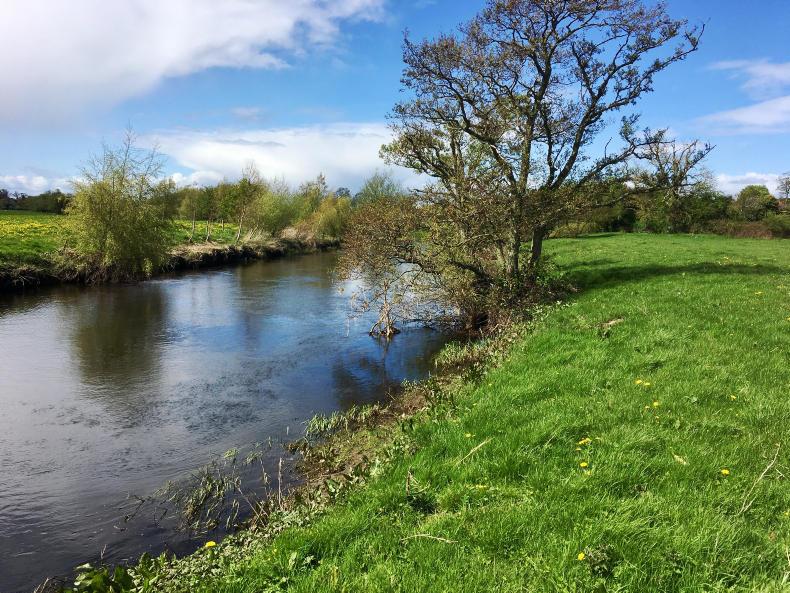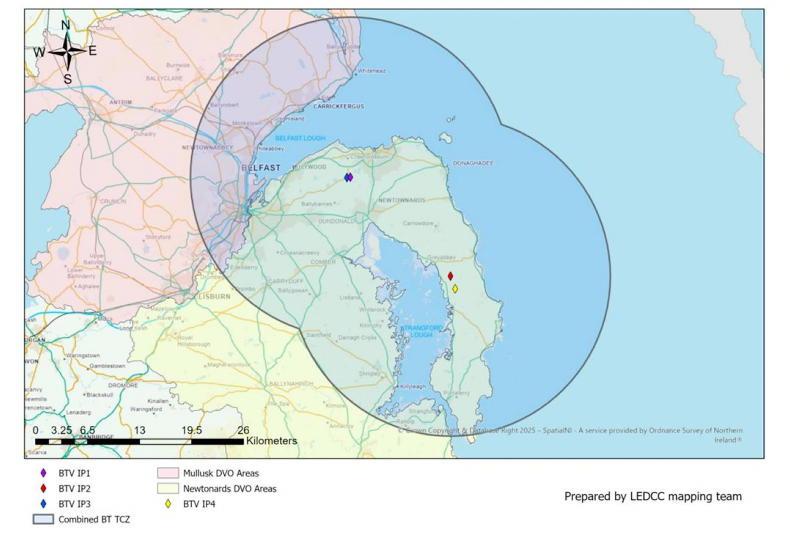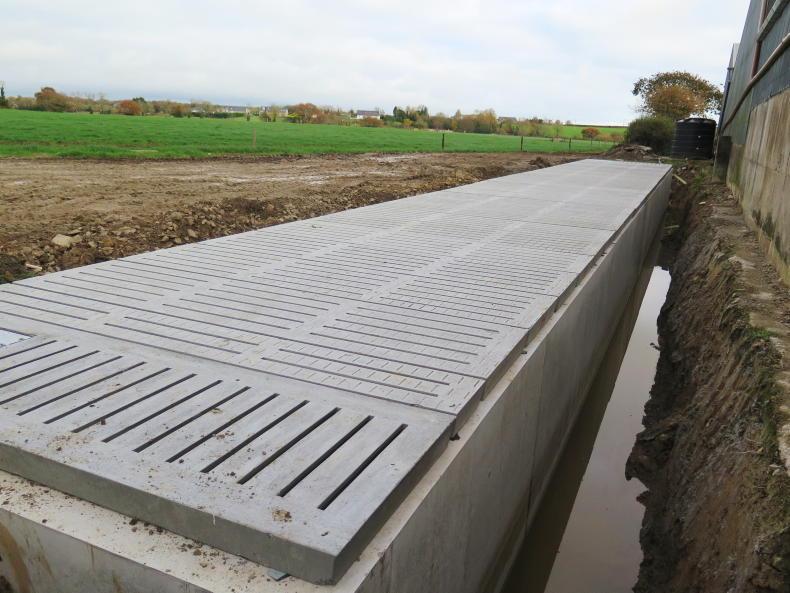The current Nitrates Action Programme and Phosphorus Regulations (NAP) are being reviewed by DAERA ahead of an updated programme being introduced next year.
The current NAP was due to finish at the end of 2018, however with no minister at DAERA, the review is progressing slower than expected and a new NAP will not be in place by 1 January 2019.
The current NAP sets out rules relating to closed periods for spreading organic and chemical manures, storage requirements for slurry and chemical fertiliser spreading limits.
Speaking at a water quality workshop in Omagh last week, Tim Irwin from the NI Environment Agency (NIEA) said the review of NAP is due to be completed by March 2019.
He said department officials are currently interpreting new legislation, which gives civil servants powers to make some decisions without political oversight, to see if it could be used in this circumstance.
Proposals for a revised NAP will be subject to a public consultation and it is understood that the plan will tie in with DAERA’s upcoming Ammonia Action Plan. Irwin acknowledged that Brexit creates some uncertainty around any legislative process, but he pointed out that the UK government has committed to maintain environmental standards, regardless of Brexit’s outcome.
A relaxation of slurry and fertiliser rules for NI farmers appears remote, as NIEA figures indicate that overall water quality across NI rivers has not improved over the period of the current NAP.
NIEA
Speaking at the event in Omagh, Deirdre Quinn from NIEA said 31.3% of rivers in NI had good or high water quality status in 2018, compared with 32.7% in 2015. Her colleague, Lisa Maddox, explained that water quality status is based on tests for 40 different measures.
“It is quite difficult for a water body to reach good status,” she acknowledged.
However, all speakers at the event last week made clear that water quality remains an issue in NI, with phosphorus levels being the main problem.
“Improvements in some catchments have been masked by deteriorations in others. Issues with SRP (soluble reactive phosphorus) are a particular concern and will be raised with the department,”
Quinn said.
Small number of farmers cause MCPA issues
Short-term spikes in the level of MCPA in some waterways stem from incidents on a small number of farms, delegates at last week’s water quality workshop in Omagh were told.
MCPA-based pesticides are used mainly for rush control, and removing the chemical at water treatment works can lead to significant operating and capital costs for NI Water.
Diane Foster from the Source to Tap project presented a graph which showed MCPA levels in the Derg River in Co Tyrone rising drastically over several hours in May 2018, before falling sharply to normal levels again.
She explained that the sharp spike recorded was most likely due to an incident on a single farm, such as a small amount of MCPA entering a drain as a sprayer was being filled.
Dominic McCann from the Water Catchment Partnership said that the free weed-wiping with glyphosate for farmers in the Seagahan catchment in Co Armagh has continued to reduce MCPA levels in waterways.
He presented figures showing the average MCPA level in water entering the Seagahan treatment works was above the EU’s 0.1mg/l limit prior to 2017, but was less than 0.05mg/l last year and less than 0.02mg/l in 2018.
McCann said the free weed-wiping trial was also run in the Glenhordial catchment outside Omagh this year, and could be extended to a sub-catchment of the Ballinrees reservoir near Coleraine next year.
Read more
DAERA concern over phosphorus levels in waterways
More farmers must consider NAP derogation
The current Nitrates Action Programme and Phosphorus Regulations (NAP) are being reviewed by DAERA ahead of an updated programme being introduced next year.
The current NAP was due to finish at the end of 2018, however with no minister at DAERA, the review is progressing slower than expected and a new NAP will not be in place by 1 January 2019.
The current NAP sets out rules relating to closed periods for spreading organic and chemical manures, storage requirements for slurry and chemical fertiliser spreading limits.
Speaking at a water quality workshop in Omagh last week, Tim Irwin from the NI Environment Agency (NIEA) said the review of NAP is due to be completed by March 2019.
He said department officials are currently interpreting new legislation, which gives civil servants powers to make some decisions without political oversight, to see if it could be used in this circumstance.
Proposals for a revised NAP will be subject to a public consultation and it is understood that the plan will tie in with DAERA’s upcoming Ammonia Action Plan. Irwin acknowledged that Brexit creates some uncertainty around any legislative process, but he pointed out that the UK government has committed to maintain environmental standards, regardless of Brexit’s outcome.
A relaxation of slurry and fertiliser rules for NI farmers appears remote, as NIEA figures indicate that overall water quality across NI rivers has not improved over the period of the current NAP.
NIEA
Speaking at the event in Omagh, Deirdre Quinn from NIEA said 31.3% of rivers in NI had good or high water quality status in 2018, compared with 32.7% in 2015. Her colleague, Lisa Maddox, explained that water quality status is based on tests for 40 different measures.
“It is quite difficult for a water body to reach good status,” she acknowledged.
However, all speakers at the event last week made clear that water quality remains an issue in NI, with phosphorus levels being the main problem.
“Improvements in some catchments have been masked by deteriorations in others. Issues with SRP (soluble reactive phosphorus) are a particular concern and will be raised with the department,”
Quinn said.
Small number of farmers cause MCPA issues
Short-term spikes in the level of MCPA in some waterways stem from incidents on a small number of farms, delegates at last week’s water quality workshop in Omagh were told.
MCPA-based pesticides are used mainly for rush control, and removing the chemical at water treatment works can lead to significant operating and capital costs for NI Water.
Diane Foster from the Source to Tap project presented a graph which showed MCPA levels in the Derg River in Co Tyrone rising drastically over several hours in May 2018, before falling sharply to normal levels again.
She explained that the sharp spike recorded was most likely due to an incident on a single farm, such as a small amount of MCPA entering a drain as a sprayer was being filled.
Dominic McCann from the Water Catchment Partnership said that the free weed-wiping with glyphosate for farmers in the Seagahan catchment in Co Armagh has continued to reduce MCPA levels in waterways.
He presented figures showing the average MCPA level in water entering the Seagahan treatment works was above the EU’s 0.1mg/l limit prior to 2017, but was less than 0.05mg/l last year and less than 0.02mg/l in 2018.
McCann said the free weed-wiping trial was also run in the Glenhordial catchment outside Omagh this year, and could be extended to a sub-catchment of the Ballinrees reservoir near Coleraine next year.
Read more
DAERA concern over phosphorus levels in waterways
More farmers must consider NAP derogation









SHARING OPTIONS